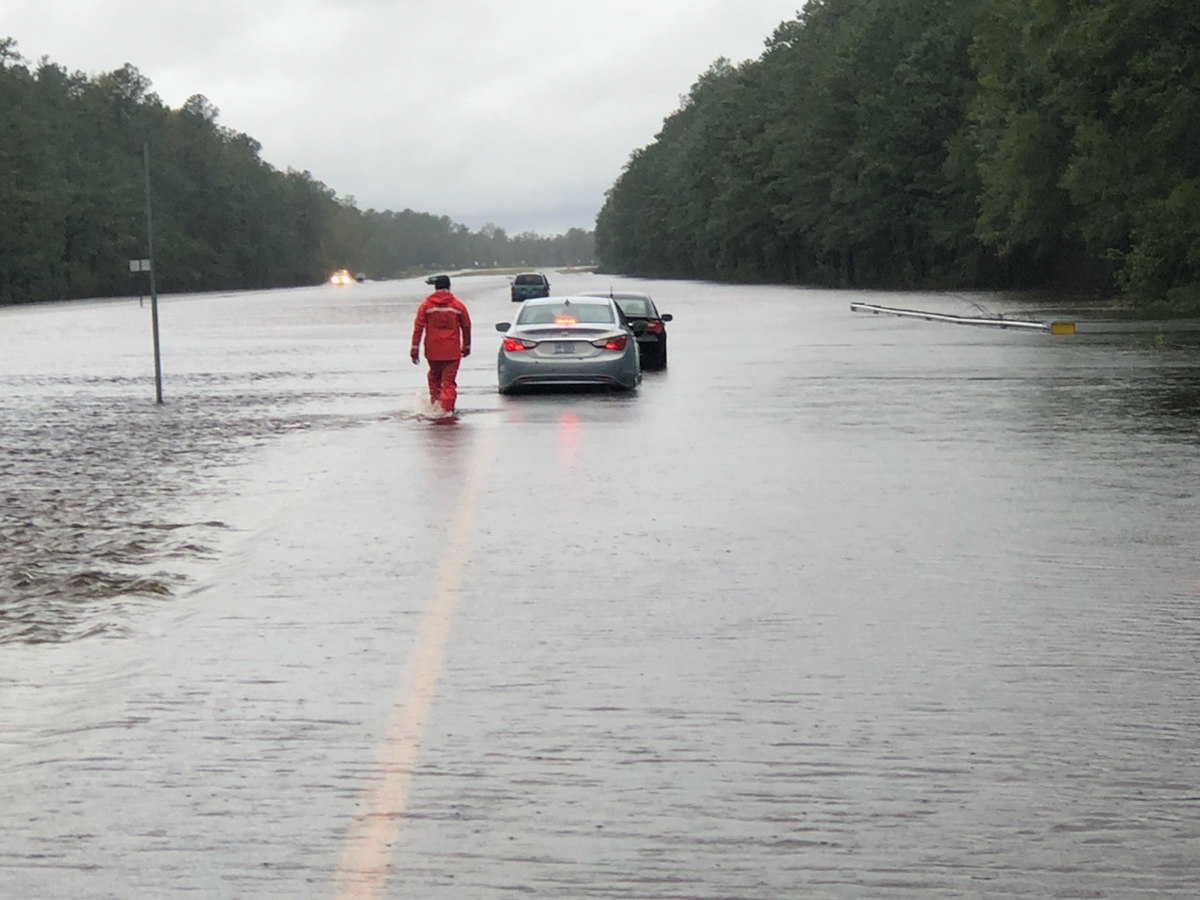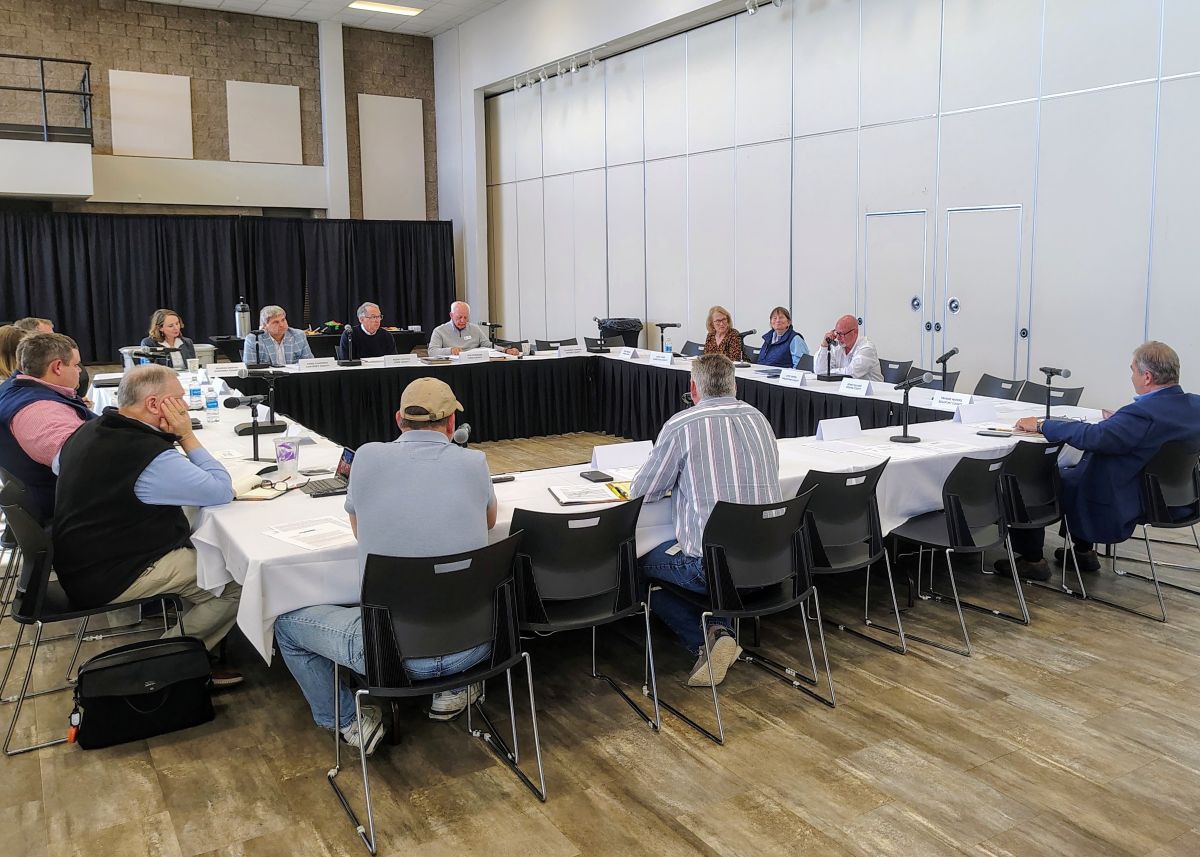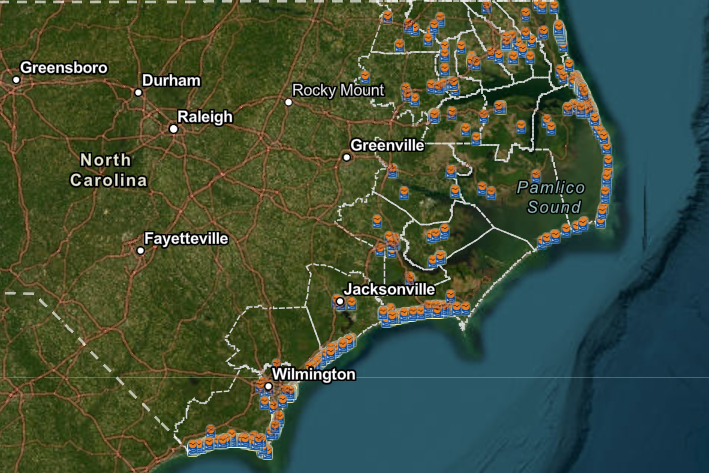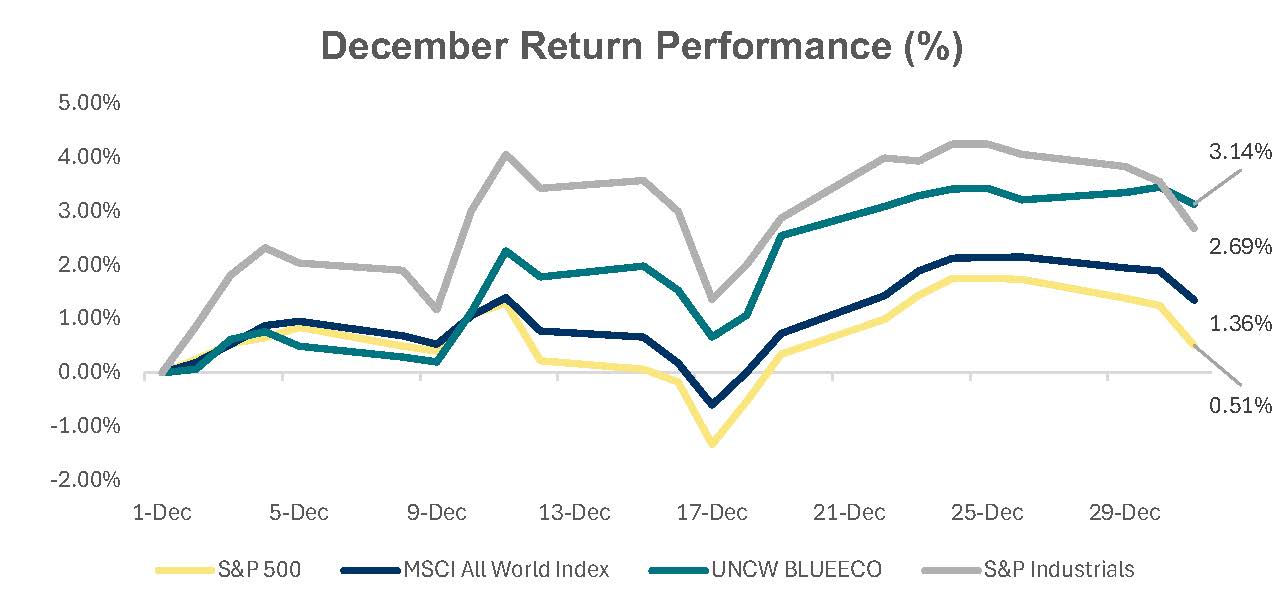
More than $600,000 in grant funding through a state-private partnership will help kick-start 10 resilience projects in eastern North Carolina.
The North Carolina Office of Recovery and Resiliency, or NCORR, partnered with the Duke Energy Foundation to select the recipients for the Duke Energy Resilience Accelerator Grant Program.
Supporter Spotlight
Over the last few years, NCORR’s Regional Resilience Portfolio Program has worked with nine Council of Governments in the eastern part of the state, particularly those with areas hit hard by the September 2018 Hurricane Florence, to create regional vulnerability assessments and resilience portfolios. The winning projects were established in these regional portfolios.
“The goal of the program was to help local leaders work with one another to identify priorities, challenges and then strategies for climate hazard resilience,” the state’s Chief Resilience Officer Dr. Amanda Martin said in a statement. “The accelerator grant seed money will move these projects to the next step of implementation.”
The Albemarle Commission has been awarded $65,000 to develop a toolkit of customizable stormwater, water quality and flooding outreach for its member counties. The Albemarle Commission is the Council of Governments organization for Camden, Chowan, Currituck, Dare, Gates, Hyde, Pasquotank, Perquimans, Tyrrell and Washington counties.
In the Cape Fear region, $65,000 has been awarded to expand Men and Women United for Youth & Families, an organization serving historically underserved communities with disaster mitigation and recovery assistance. Counties in the Cape Fear region are Brunswick, Columbus, New Hanover and Pender.
In the Eastern Carolina Council of Governments region, through an agreement with Goldsboro, $65,000 will go to Community Technical Assistance Inc. to reuse city-owned property acquired through FEMA’s Hazard Mitigation Grant Program as an outdoor classroom for education and leadership training. The Eastern Carolina Council of Governments region includes Carteret, Craven, Duplin, Greene, Jones, Lenoir, Onslow, Pamlico and Wayne counties.
Supporter Spotlight
Roxboro, in the Kerr-Tar Council of Governments region, will use its $65,000 to coordinate a commercial and industrial building inventory, including analysis of climate hazard impacts and risk reduction improvements, for its member counties of Person, Granville, Franklin, Vance and Warren.
In the Lumber River Council of Governments region, $65,000 goes to Carolina Wetlands Association and its partners to develop a wetland restoration plan for 50 acres covering part of the Lumbee Cultural Center property and surrounding wetlands in Robeson County that routinely floods. The counties in this region are Bladen, Hoke, Richmond, Robeson and Scotland.
Cumberland County, in the Mid-Carolina Council of Governments region, has been awarded $27,650 to install stream gauges and sensors at six locations to help improve flood warning and forecasting in routinely flooded areas. This region includes Cumberland, Harnett and Sampson counties.
Two projects in the Mid-East Commission region have been awarded funding. Carolina Wetlands Association will use $65,000 for wetland and floodplain restoration along Parker Creek just north of Greenville and further downstream. The Association of Mexicans in North Carolina will use its $60,850 to relaunch NC Latino Disaster Recovery Alliance to share hazard response and preparedness information with Latino and Spanish-speaking community members, including farmworkers. This region includes Beaufort, Bertie, Hertford, Martin and Pitt counties.
Triangle J Council of Governments has been awarded $65,000 to plan and implement a Haw River warning system and evaluate backup power needs for emergency shelter facilities. This region includes Chatham, Johnston, Lee and Moore counties.
Nash County, in the Upper Coastal Plain Council of Governments, has been awarded $65,000 to create flood resiliency by developing a benefit-cost analysis and a study of routinely flooded access points that include access to an emergency communications tower and residential neighborhood. This region includes Edgecombe, Halifax, Nash, Northampton and Wilson counties.
“Resiliency to climate hazards begins at the local level,” Duke Energy’s North Carolina president Kendal Bowman said. “North Carolina communities have been hit hard in recent years by natural disasters and storms. These grants will help communities thrive amid changing climate conditions.”
The Regional Resilience Portfolio Program is a component of the larger Regions Innovating for Strong Economies & Environment, or RISE, program.
RISE, a partnership between the NCORR and N.C. Rural Center and in collaboration with the N.C. Councils of Governments, is funded by a $1.1 million U.S. Economic Development Administration grant, in addition to federal mitigation funds, and support from both NCORR and N.C. Rural Center. RISE is managed by NCORR, a division of the state Department of Public Safety.







